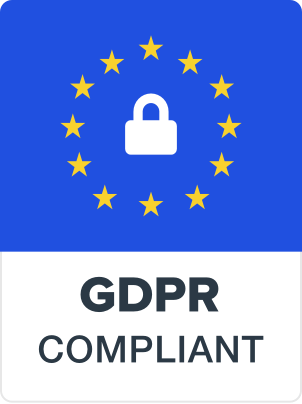Streamline Site Audits with the Construction Business Audit App

October 20 , 2023
Effective and precise practical construction should be the priority. Thus, a site audit must be conducted to establish a construction site effectively since it must be secure, lawful, and disciplined. On the other hand, paper-based traditional methods might be less interactive and prone to errors.
Construction is large and increasing day by day. As per the research, the global construction industry’s revenues are expected to increase ominously in the coming decades. In 2020, these revenues were valued at 7.4 trillion US dollars. Projections indicate that by 2030, a decade from now, this figure is likely to double and close approximately 14.4 trillion US dollars, reflecting large growth in the industry.
With innovative construction business audit app such as UrAudits, one can have easy and secure site audits within the construction industry.
Advantages of Conducting a Construction Business Audit App

Understanding the drawbacks of a traditional site audit before venturing into the rewards of construction business audit apps is imperative. These challenges are:
Time-Consuming Data Entry

The traditional site surveys conducted manually rely on paper for recording findings written by a field officer – slow and error-prone. The auditor may have to spend an extended time filling in documents manually. They document security violations, accidents in the making, and improvement tips. However, a person should enter this data into the computer system later. It might have errors. Conversion into electronic forms makes more sense.
An auditor may, for instance, enter “broken handrail” in a paper record. Nevertheless, when the person inputting the data writes “broken handrail” instead of “broken-handrail,” errors arise and compromise security in the facility.
Limited Accessibility
Paper audit forms are customarily kept on the site, making it difficult for project managers, stakeholders, and other parties to access and view audit reports remotely. This can result in slow decision-making and delayed issue resolution. This can cause tremendous problems in a large construction project. For example, a project manager may be forced to make a critical decision based on the findings of a safety audit. They may need to visit the site physically or wait to receive their report, thus creating delays.
Version Control Issues
The use of paper forms results in problems associated with version control. Audit forms must also be updated since regulations and company policies change occasionally. These forms can be a nightmare to control their numerous versions. For example, a construction company might use paper forms for a quality control audit. When industry standards change, the audit form has to be updated to capture new data points. Auditors should be informed of this change, and all paper copies must be renewed. Auditors may use different forms in the field, resulting in clarity and consistency.
Inefficient Communication
Paper reports are generally problematic regarding effective communication. But, there needs to be faster communication between field personnel and the office that can cause misunderstandings.
For instance, when auditors identify a potential safety hazard in a construction site, they document it on paper and then submit the report. The office personnel may need to follow up with the field team for clarification, which may involve further back-and-forth communication and potential delays. The problem of handwritten notes or incomplete documentation may result in misunderstandings and the need for clarity while solving issues.
Data Security Concerns
Unauthorized people can damage, lose, or access paper reports, compromising confidential data. For instance, Industries such as construction require a guarantee of security and confidentiality of audit information. For example, a safety audit might indicate disobedience of environment-related legislation. The construction company could face regulatory fines and reputational damage if the report is misplaced.
Enter Construction Business Audit Apps With UrAudits

Digital solutions to these challenges are presented by construction business audit apps. They are specifically designed to streamline the site audit process and offer numerous benefits.
Real-Time Data Capture
Real-time data capture is one of the most important benefits of utilizing a construction business audit app. The app allows for direct input of audit information by field personnel, thus obviating the need for manual data entry. As a result, data does not have to be transcribed; hence, time is saved.
Accessibility and Remote Collaboration
Remote collaboration can occur through construction audit apps. Project managers, stakeholders, and the public can instantly access audit reports and findings. This makes it easier to make prompt decisions, even when the team members are away from the company’s offices.
Customization and Compliance
The construction business audit apps can be customized to suit audit requirements and industry regulations. The app can meet various standards and company policies as they change. The app can also be used to update the audit forms, allowing auditors to always have up-to-date versions of the forms.
Improved Communication
Effective communication is vital to any successful project in construction. Applications for construction audits improve communication by letting auditors attach images, videos, and notes to their reports. The visual and textual data is highly descriptive, enabling easy comprehension of audit results and handling problems.
Enhanced Security
Data security is a paramount concern in the construction industry. Construction audit apps often have built-in security features, such as user access controls, encryption, and secure cloud storage. This helps protect sensitive audit information from unauthorized access, loss, or damage.
Real-World Case Studies
Now you know about our Construction Business Audit App like UrAudits—visit our site to know everything about us.
Now, illustrate the real world of construction business audit apps, let’s look at them:
Case Study 1: Increased Efficiency
One example involved a large construction company, Ryan Companies that shifted from traditional paper-based audits to a construction business audit app. This change enhanced their operation considerably. Here’s how:
Real-time Data Capture: It enabled auditors to record their findings using digital forms without manually entering data. This real-time data capture saved auditors a great deal of time.
Automated Report Generation: The audit app converts the entered data into reports. This removed the need for the manual compilation and formatting of audit reports, easing the work of auditors and office staff.
This saved the time of completion of audits by 50%. With a more efficient audit, the construction company could quickly manage sites and respond to issues. This increased safety resulted in reduced costs and higher productivity.
Case Study 2: Improved Compliance
The construction company called PCL uses its own “PCL’s groundbreaking web app” to ensure conformity with the ever-changing industry laws. Here’s how the audit app helped them improve compliance:
Customization: The firm’s highly customizable construction audit app enabled it to change its audit forms according to the latest regulatory demands. In case of any update to the regulations or company policies, the forms could be easily amended in the app.
Version Control: The app addressed the version control issue by ensuring that all auditors use the most updated forms, avoiding non-compliance risks from outmoded documents.
This caused a decrease in compliance problems with fines. This would help the construction firm comply with industry standards and thus improve its reputation and avoid costly penalties.
Case Study 3: Better Documentation
For instance, a small construction company “Suffolk Construction” utilized an audit app to enhance project records and client communication. The benefits included:
Multimedia Attachments: Our app lets auditors add videos, images, and notes to their audit reports. You can have enhanced documentation of project details and issues with a more thorough and graphical site representation.
Improved Communication: With multimedia-rich audit reports, the construction company could more effectively communicate with clients. Clients clearly understood the project’s progress, challenges, and resolutions, fostering transparency and trust.
This enhanced documentation and communication led to greater client satisfaction. They improved the company’s ability to track project milestones and address issues promptly. It showcased the company’s commitment to quality and professionalism.
Conclusion
Construction business audit apps are reshaping the construction industry. UrAudits can make site audits less cumbersome by addressing the challenges of paper-based methods. Our app comes with real-time data capture, easy access, customization, improved communication, and enhanced security. Making them very important to all sizes of construction companies.
The case studies show real benefits from implementing such technologies, such as more efficiency, better compliance, and improved records.
Construction business audit apps are transforming the game of construction site audits by making them more efficient and secure in an industry where time and accuracy are everything.
So, are you ready to revolutionize your construction site audits? Discover the power of our cutting-edge site auditing app called UrAudits.
Experience more enormous efficiency, enriched compliance, and better documentation in the palm of your hand.
Download the Auditing application for Play Store, Auditing app for App Store and as a web app. Get started today for real-time capture incidents and elevate your construction business.
Copyright © 2024 Uraudits.com. All Rights Reserved. Privacy Policy | Legal | Terms of Use
Privacy Overview
| Cookie | Duration | Description |
|---|---|---|
| cookielawinfo-checbox-analytics | 11 months | This cookie is set by GDPR Cookie Consent plugin. The cookie is used to store the user consent for the cookies in the category "Analytics". |
| cookielawinfo-checbox-functional | 11 months | The cookie is set by GDPR cookie consent to record the user consent for the cookies in the category "Functional". |
| cookielawinfo-checbox-others | 11 months | This cookie is set by GDPR Cookie Consent plugin. The cookie is used to store the user consent for the cookies in the category "Other. |
| cookielawinfo-checkbox-necessary | 11 months | This cookie is set by GDPR Cookie Consent plugin. The cookies is used to store the user consent for the cookies in the category "Necessary". |
| cookielawinfo-checkbox-performance | 11 months | This cookie is set by GDPR Cookie Consent plugin. The cookie is used to store the user consent for the cookies in the category "Performance". |
| viewed_cookie_policy | 11 months | The cookie is set by the GDPR Cookie Consent plugin and is used to store whether or not user has consented to the use of cookies. It does not store any personal data. |









